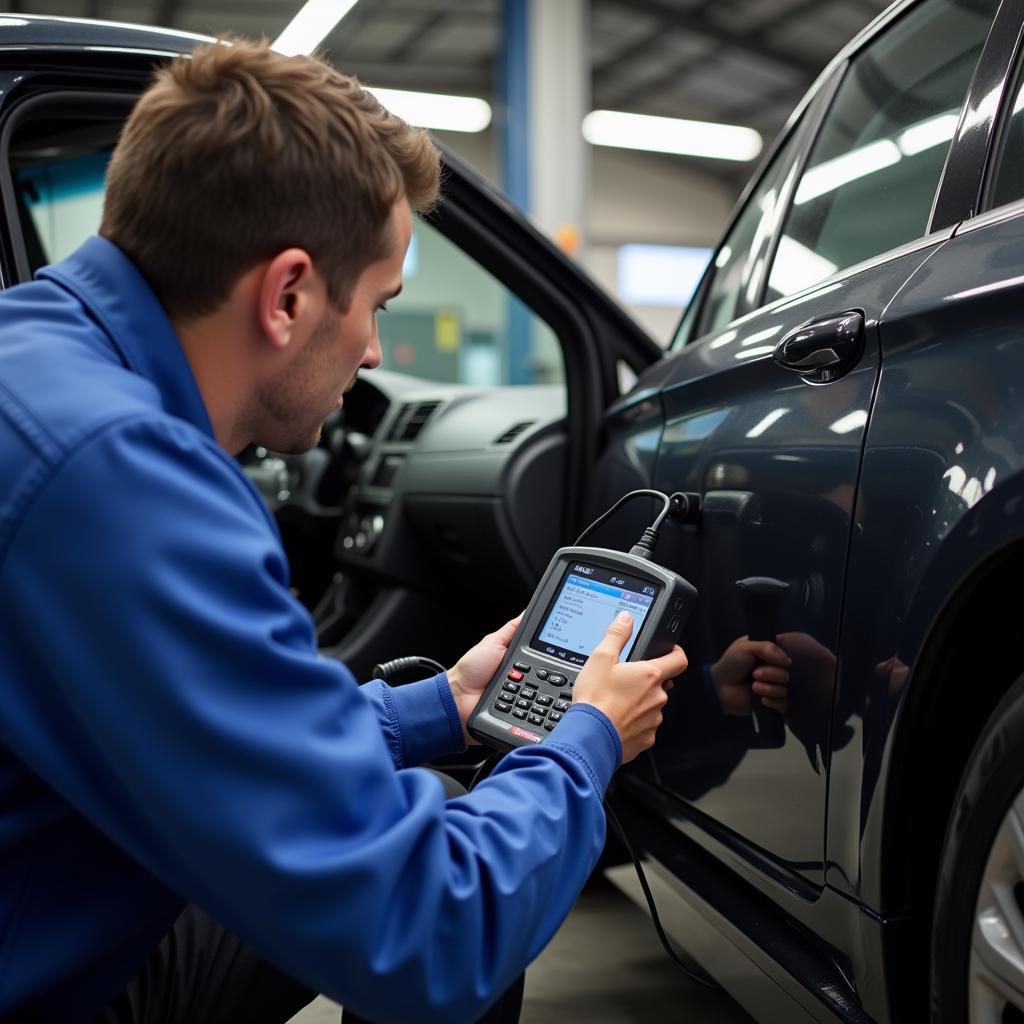Finding the right diagnostic device for your car repair needs can feel overwhelming with so many options available. Whether you’re a seasoned mechanic or a car enthusiast looking to do your own repairs, you need a reliable diagnostic tool to identify and troubleshoot issues effectively. This guide will walk you through everything you need to know about where to find the best car diagnostic devices.
Types of Car Diagnostic Devices
Before we dive into where to buy, let’s explore the different types of car diagnostic devices available:
- OBD2 Scanners: These are the most common and affordable type of car diagnostic tool. They connect to your car’s OBD2 port and can read and clear basic engine fault codes.
- Code Readers: Similar to OBD2 scanners, code readers provide more detailed information about the error codes, often including possible causes and solutions.
- Professional Diagnostic Scan Tools: These advanced tools offer comprehensive functionalities, including live data streaming, module coding, bi-directional controls, and access to manufacturer-specific systems.
- DIY-Friendly Diagnostic Tools: Several user-friendly tools on the market cater specifically to car owners who prefer a DIY approach. These tools often connect to your smartphone or tablet, providing a convenient and intuitive way to diagnose car problems.
Where to Buy Diagnostic Devices for Cars
Now that you have a better understanding of the different types of car diagnostic devices available, let’s explore where you can purchase them:
1. Auto Parts Stores
Large auto parts chains like AutoZone, Advance Auto Parts, and O’Reilly Auto Parts carry a wide selection of OBD2 scanners, code readers, and even some DIY-friendly diagnostic tools. These stores are easily accessible and offer the convenience of in-person shopping and expert advice from their staff.
2. Online Retailers
Online giants like Amazon, eBay, and Walmart offer an even broader selection of car diagnostic devices at competitive prices. You can find everything from basic scanners to professional-grade tools from various brands and manufacturers.
3. Specialty Automotive Tool Suppliers
For professional mechanics or serious car enthusiasts, specialty automotive tool suppliers like Matco Tools, Snap-on, and Mac Tools offer high-quality, professional-grade diagnostic tools. These suppliers often provide excellent customer support and technical assistance.
4. Manufacturer-Specific Dealerships
If you’re looking for a diagnostic tool specifically designed for your car’s make and model, consider contacting your local dealership. They often carry manufacturer-specific diagnostic tools that offer advanced functionalities and access to proprietary systems.
Choosing the Right Diagnostic Device for You
With so many options available, choosing the right diagnostic device for your needs depends on several factors:
- Your Budget: Basic OBD2 scanners can cost as little as $20, while professional-grade tools can range in the thousands. Determine your budget before you start shopping.
- Your Skill Level: If you’re a beginner, a user-friendly OBD2 scanner or code reader should suffice. For more advanced users, consider a professional-grade tool with comprehensive functionalities.
- Your Car’s Make and Model: Some diagnostic tools are specifically designed for certain car makes and models. If you’re looking for manufacturer-specific functionalities, consider a tool compatible with your vehicle.
“Investing in the right diagnostic device can save you time, money, and frustration in the long run,” says automotive expert John Smith, ASE Certified Master Technician. “Take the time to research your options and choose a tool that aligns with your needs and budget.”
 Mechanic Using Diagnostic Tool
Mechanic Using Diagnostic Tool
Conclusion
Whether you’re a DIY enthusiast or a professional mechanic, having a reliable car diagnostic device is crucial for identifying and resolving car problems efficiently. By understanding the different types of devices available and exploring the various purchasing options outlined in this guide, you can make an informed decision and equip yourself with the right tool to keep your car running smoothly.

Leave a Reply